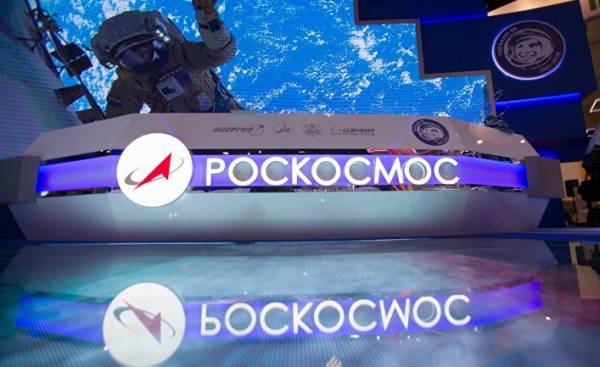
Space agencies often sing the praises of your work to study what lies beyond earth’s atmosphere, stating that it is for the benefit of mankind. Perhaps it is natural. Therefore, when the head of the Russian space Agency, speaking at the 33rd annual Space Symposium in Colorado springs, says: “As we work together for the good of all to get the best result?” and “We need to find ways to work together”, no one questioned his motives.
And it would be necessary, because the Russian space Agency more than 20 years are not sent to the Symposium such a representative delegation. During this meeting, which was attended by the heads of space agencies from 14 countries, Director General of Roskosmos, a dark — haired, handsome man named Igor Komarov stressed her country’s willingness to cooperate in the framework of the emerging space programs of emerging countries such as Vietnam and Venezuela. Speaking of international partnerships, the Mosquito life-affirming uses terminology such as the words “cooperation” and “cooperation”. The same throughout the Symposium, and doing other representatives of Roscosmos. But above all, this office is interested in the buyers and customers. Last year, the Russian government held the Russian space Agency restructuring, making it a state Corporation. Now this lack of funds the organization with altruistic terminology promotes the nascent space programs of other customers that rely on 60-year-old Russian experience in orbit.
Of course, Russia is not the only space power that seeks to make a profit under the banner of high ideals. The company SpaceX says that it will fly to Mars and save civilization, but for this it is necessary first to launch many satellites. A mutually beneficial partnership has become a key part of space research ever since, after the collapse of communism had gained the upper hand, the idea that the cosmos exists beyond the earthly borders and nationalism. But this idealism overlooks the important driving forces for space research, which include nationalist rivalry, the desire to elevate their country and something else: money.
Today Roscosmos not only fighting for the ideals he is fighting for survival. “Their space program in a very weak condition, despite the fact that Komarov and his assistants spoke in Colorado,” says founder and former Director of the Institute for space policy (Space Policy Institute) at the George Washington University John Logsdon (John Logsdon). He described several current problems: the recent budget cuts, problems with the proton booster, the delay in establishing a new generation of missiles “Angara”. “This program’s in trouble,” says Logsdon.
Come with us
The space transcends borders are very pragmatic, and a good relationship is not in last place. The Roskosmos already has partners among the major space players such as the US, Canada and Europe. And he is cooperating with the new space agencies, such as those that have launched programs in Vietnam and India. It works together with the European space Agency on the creation of the Orbiter ExoMars (this is fine), lander (this work is not very good) and future Mars Rover (here things are not clear how). NASA leases the Russian Soyuz rocket to orbit astronauts, equipment and conduct experiments in space. But the cosmonauts and astronauts live side by side aboard the International space station, talking in a hybrid language they call “runglish”.
This has arisen partly for reasons of a purely practical nature. If you are familiar with someone who knows what he says, then you have probably heard the phrase “space is hard”. And still expensive. So when it comes to most difficult in an already difficult endeavor, distribution of technical and financial burden is the only way to achieve the same goals. “It is quite natural, when a country says they want their own efforts to launch and orbit satellites, says President of the nonprofit “Aerospace Corporation” (Aerospace Corporation) Steve Isakowitz (Steve Isakowitz). But the reality is that we don’t print money, and therefore resources have always been limited.”
Therefore, countries are working together. This is both the best way to solve problems faced by many countries (e.g. what to do with space debris), and a great opportunity to save while still achieving your goal. But money saving is not the only path to financial success. To do more is also very useful.
“Union” wants to make a deal?
It is best to Express their desire to cooperate with the “new space countries” and with future customers at the event, where it will hear more than 30 States. These countries need the launch pad, equipment, scientific knowledge and experience. And it is not excluded that they have natural and human resources, which is not from Russia.
During a press conference that the Russian Federal space Agency convened at the end of the Symposium, Komarov explained what his company. I must say that she does not like NASA. Is a state Corporation. The umbrella company, which is owned by the state. This is news. State Corporation for outer space activities “Roscosmos” has started to lead the Russian space program in January 2016. However, this organization is responsible not only for the launches and scientific activities. In its policy statement (published on the website of the Corporation) that the Corporation “will place orders for the development, production and supply of space equipment and space infrastructure” and “developing international cooperation in the space sector and creates conditions for the use of results of space activities in the socio-economic development of Russia.”
Roscosmos is practically a monopolist in the Russian space industry. The Corporation unites more than 60 companies, and it employs 250 thousand people. In the spirit of cooperation, she uses these resources to engage in new work. Roscosmos is developing a technique and technology, tools for Earth observation, communications system for Vietnam, Venezuela, Brazil, Mexico and Chile. Oh, and it helps these countries to prepare their own experts and to develop a space policy. In other words, “help”, Russia not only forms a promising direction of development of the international space industry, but also to decide how it would function politically.
Of Roscosmos there is no reason to “help”. What is his purpose? Answering a direct question about why the Corporation pays such attention to cooperation, Deputy Director of Roscosmos in international activities Sergey Savelyev nothing to hide. “This future clients,” he says to me. And then grins.
Orbital oligarchy
In other words, if Russia is helping the new countries to create their own working space agencies and the aerospace industry, then these organizations will necessarily need (and costs) that need to satisfy (and provide). Who would do that? And with whom they will share their valuable resources, data, and infrastructure? Of course, with Russia.
Speaking about the partnerships with space agencies usually have little to say about how they earn money and collect resources. “For the benefit of all mankind” — it sounds much better. But newcomer countries is unique not only due to the fact that they are a potential client of Russia. “They seem late to the party, says Logsdon. — This is the key to international space cooperation China for several years, and he is actively working with developing countries”. China does not need more clients, and sources of raw materials. To that end, he has three decades collaborating with Brazil. “They have also set their sights on Central Africa and the Latin American countries, seeing them as potential partners for many years,” says Logsdon.
Shaming Russia for its aspirations there is no reason. On the other hand, if you’re in some other space Agency or space Corporation, you may experience additional anxiety. For example, does not take an active attack Russia in the space market clientele, the company SpaceX?
Unlikely. “They say they want to do it, but this does not mean that they will do it, says Logsdon. — First, they need to succeed in finding new partners.” Of course, the experience of Russia is what it is and what to offer for sale. “But the equipment they have is not in the best condition, and their industrial base weakens — continues Logsdon. — I do not believe that this poses a threat to other space agencies. Just this change in the direction of the Agency, which faced certain difficulties.”
This is a smart strategic move. The space is really hard, but everything becomes much easier if you have a influx of customers.







